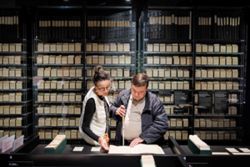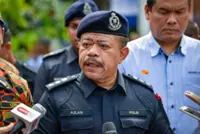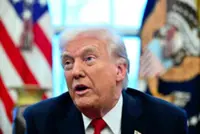
FILE PHOTO: Construction workers build a new park outside the National Palace prior to El Salvador’s President Nayib Bukele second term inauguration ceremony in downtown San Salvador, El Salvador, May 28, 2024. REUTERS/Jose Cabezas/File Photo
SAN SALVADOR (Reuters) -Police say they have thwarted a plot to detonate explosives at locations across El Salvador on Saturday, when President Nayib Bukele is set to be inaugurated for a second term.
Police said late on Thursday they had arrested seven "veterans" of the Central American nation's 1980-1992 civil war, including the plot's alleged financier, Jose Santos Melara, an ex-congressman for the leftist FMLN party, which was formed by former guerrillas.
KEY QUOTE
The suspects "were part of the so-called Salvadoran Insurrection Brigade and their objectives were to detonate (explosives) at gas stations, supermarkets and public institutions," the national police said on social media. On Friday they posted photos of the homemade explosives they said they had seized.
CONTEXT
Bukele was expelled from the then-ruling Farabundo Marti National Liberation Front (FMLN) in 2017, before his election to the presidency. Later he criticized the 1992 peace accords that ended the civil war.
Bukele won re-election in a landslide victory in February after garnering massive popularity in his first term. He campaigned on the success of his security strategy, under which authorities suspended civil liberties to arrest more than 80,000 Salvadorans without charge.
The detentions led to a sharp decline in murder rates and fundamentally altered the country of 6.3 million people, once one of the world's most dangerous.
WHY IT MATTERS
Bukele has argued that El Salvador is beset by "terrorist" gangs, and that those detained in his crackdown are members of these gangs. He says the threat they pose justifies his security strategy.
REACTION
"Violence has no place in politics," Luis Parada, an opposition politician who finished fourth in February's presidential election, said on social media.
He said that while the allegations were worrying, so too was the national police's "history of false accusations ... especially during the last two years."
WHAT'S NEXT
On Saturday, Bukele will be sworn in to a second term, which had been constitutionally prohibited until El Salvador's top court ruled in 2021 that he could stand for re-election.
(Reporting by Nelson Renteria; Writing by Brendan O'Boyle; Editing by Paul Simao and Kevin Liffey)






































